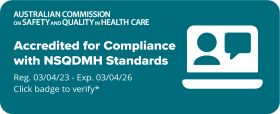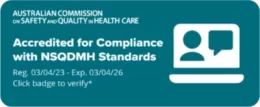Quick Facts
- Pregnancy and the first year of parenthood (the perinatal period) is an exciting time that brings new challenges and responsibilities for expecting parents.
- However, both men and women can experience depression or anxiety during pregnancy (antenatal) and following the birth of their baby (postnatal). Mothers can also develop postnatal psychosis, an acute and rare mental illness.
- Perinatal mental illnesses are treatable. With appropriate care and support, many people with perinatal mental illness go on to have more children.
-
The facts
- As many as 1 in 5 expecting or new mums and 1 in 10 expecting or new dads will experience perinatal anxiety or depression.
- Perinatal anxiety or depression affects around 100,000 families across Australia every year.
- Mothers and fathers can develop perinatal mental illness during pregnancy, during early parenthood or any time in the first 12 months of a child’s life. After this time, it is usually treated as a non-perinatal mental illness.
- Postnatal psychosis (also known as postpartum or puerperal psychosis) is a serious and rare form of acute mental illness that usually occurs within the first month after a child is born. It affects one to two new mothers in every 1000.
-
The myths
- Myth: only women can experience perinatal mental illness.
- Reality: both men and women can experience perinatal mental health issues and these can vary in intensity and symptoms.
- Myth: having perinatal mental illness makes you a bad parent.
- Reality: parents with a mental illness are not inherently bad parents. Most parents with perinatal mental illness can care for their babies, often putting their own needs last to care for their children.
- Myth: feeling depressed or anxious is just part of pregnancy and parenthood.
- Reality: Becoming a parent can be stressful and many mums and dads have some ‘down days’ as they adjust. However, symptoms that last for two weeks or more and impact on daily life are a sign you need to seek help.
- Myth: it can’t be perinatal mental illness if you haven’t had the baby yet.
- Reality: expecting mums and dads can develop anxiety or depression during pregnancy (it’s called antenatal depression or anxiety).
- Myth: perinatal mental illness is something you just have to put up with and you will eventually get over it.
- Reality: perinatal mental illness is a serious mental illness and symptoms can worsen if not addressed. Early treatment and the right support leads to a faster recovery.
- Myth: admitting you need help and seeking support is a sign of weakness.
- Reality: seeking help is a sign that you are a good parent who wants the best for your family.
Related: Understanding postnatal psychosis • Ten tips for sleep hygiene
-
Symptoms
Expecting and new parents experience many emotions during pregnancy and early parenthood. Pregnant women and their partners may feel anxious, scared, sad or nervous about becoming a parent. For new parents, the changes that come with a new baby can bring a number of difficult challenges. Some people develop more distressing anxiety or depression which affects their daily life and functioning.
The signs of perinatal anxiety and depression include:
- persistent, generalised worry, often focused on fears for the health or wellbeing of the baby
- the development of obsessive or compulsive behaviours
- abrupt mood swings, or feeling constantly sad, low, or crying for no obvious reason
- having little or no interest in all the normal things that bring joy
- withdrawing from friends and family
- finding it difficult to focus, concentrate or remember
- having thoughts of death or suicide
- increased sensitivity to noise or touch
- changes in appetite: under or overeating
- sleep problems unrelated to the baby’s needs
- loss of confidence and lowered self-esteem
- fear of being alone with baby
- intrusive thoughts of harm to yourself or baby
- increased alcohol or drug use.
Men’s symptoms may be the same as women’s, or they may be different. Some men may experience agitation and frustration. They may have out of character outbursts of anger or rage, leading to feelings of shame or guilt. These symptoms are signs it’s time to get help, rather than letting let them simmer or keeping them bottled up.
Postnatal psychosis symptoms
Symptoms of postnatal psychosis may include:
- extreme sudden mood swings, from very high to very low
- out of character behaviour
- aggressive behaviour
- a high level of agitation
- irrational or delusional thoughts or beliefs, which may include irrational beliefs or thoughts about the baby
- hallucinations and changes in sense perception, such as smelling, hearing or seeing things that are not actually there
- paranoid or strange beliefs about the baby that cannot be countered by rational discussion
- grandiose or unrealistic beliefs about your abilities as a mother
- unusual or inappropriate responses to the baby
- disordered or nonsensical thoughts and conversations.
-
Causes
While there is no single cause for perinatal mental illness, there are a number of risk factors. These include hormonal changes, traumatic pregnancy or birth, financial or relationship stress, social isolation and previous reproductive issues such as infertility.
Your own previous history or a family history of mental illness can also increase your risk of developing perinatal mental illness.
You are more likely to develop postnatal psychosis if you have bipolar disorder or schizophrenia.
Related: Psychosis • A rollercoaster ride through the darkest places I never wanted to visit
Seeking help, diagnosis & treatment
Perinatal mental health issues are very treatable. There is an increased awareness in the health sector of perinatal mental health — many GPs, maternal health nurses and maternity doctors are more aware of the risks and signs of mental illness. Many other women and men have come through this experience to enjoy being a parent, and have gone on to have more children.
Many parents go to great lengths to hide their real feelings because of stigma. If you’re close to a new or expecting parent, know the signs to look out for and ask how they’re really going. Often a partner, friend or family member is the first to notice when something is not right.
If you suspect that you, your partner or someone you know may have perinatal mental illness, gently encourage them to seek help through their GP or maternal health nurse. They can also call the PANDA (Perinatal Anxiety & Depression Australia) helpline on 1300 726 306. Offer to make the call or go to an appointment with them.
Treatment for perinatal mental illness often includes therapy with a counsellor, psychologist or psychiatrist. Medication may also be prescribed. There are medications available which are safe to use in pregnancy and while breastfeeding. Your GP will be able to discuss these options with you.
Social isolation can be a risk factor in developing perinatal mental illness. Your maternal health nurse or GP can help you access services such as parent groups, supported playgroups and other services to help you meet new parents in your area.
It was a rollercoaster ride through the darkest places I never wanted to visit.
-
Having more children
After you have recovered from perinatal mental illness, the thought of having more children may be confronting. However, with planning and support, knowing the signs and symptoms and using strategies developed in your previous recovery period, you will be better prepared to take action early and deal with any recurrence.
Women who have experienced postnatal psychosis should get advice from a doctor when considering becoming pregnant again. Many women who have had postnatal psychosis choose to have more children. About half of mothers who’ve had postnatal psychosis once will have it again, but even if that happens, with the right care, you’re likely to recover more quickly next time.
-
Treatment for postnatal psychosis
If you think that you or your partner may have postnatal psychosis, seek help immediately by calling 000 for an ambulance or the police. This is a serious mental illness that can be life-threatening for both the mother and baby. Make sure to say that the person’s behaviour is unusual and potentially dangerous, that they have a very young baby and that you think they have postnatal psychosis.
Often, other people will notice you aren’t well before you notice yourself.
Women with postnatal psychosis may be admitted to hospital for specialised psychiatric assessment and treatment. They will be given medication and psychiatric treatment to manage the condition.
Some hospitals have a special psychiatric ward where the baby can stay with the mum (a Mother Baby Unit), but this is not always possible. Access to a mother baby unit may depend on where you, as there are limited numbers of mother baby units across Australia.
Whilst it is always a priority for a baby to be kept with its mother, in many cases a woman will need to stay in an adult general psychiatric ward. If this is the case, the baby will need to be cared for by her partner or another support person. The length of time the mother can expect to stay in hospital will depend on how quickly she responds to treatment and has the confidence and ability to return home and care for her baby.
Beyond the immediate treatment period, support and care is required throughout the recovery process. Women generally experience a full recovery with time and appropriate treatment.
Related: Antipsychotics • Antidepressants • How to speak out about the challenges of parenting
-
Self-care for family, friends & carers
Caring for someone with perinatal mental illness can be distressing and confronting. You may feel unsure of how to help or what to say. Partners may feel overwhelmed caring for a person with a mental illness while looking after a new baby too.
It’s important to remember that perinatal mental illnesses are genuine illnesses. Try not to take any out-of-character behaviour personally. Focus on providing practical help and gentle emotional support.
Looking after a partner with perinatal mental illness can put you at risk of experiencing it too. Make sure to look after yourself and your own health. This will help you be the best support for your loved one. If you are concerned about your own mental health, talk to your GP.
PANDA can also offer support to carers and partners of someone with a perinatal mental illness.
This SANE resource was created with support from The Vizard Foundation.
This SANE factsheet was reviewed by industry professionals, carers and people with lived experience of perinatal mental health.









